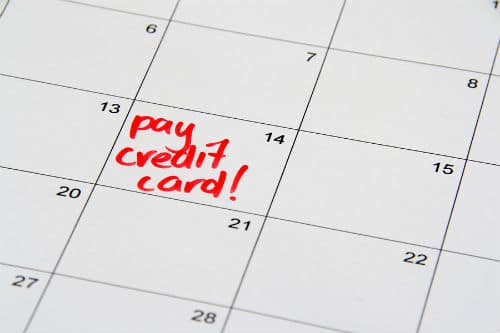After a recent financial seminar I gave at a company in New York City, I received a question from one of the workshop attendees who wanted to know the best way to handle her credit card payments, as it pertains to her credit score.
Here’s what she asked: “I generally pay off my entire credit card balance each month but I have a friend who insist that it’s better for my credit score if I pay on time but not the entire balance (like pay off 95%) but always keep a balance. Is there any truth to this?”
Now here’s my answer.
Credit Score Q&A: Is It Better to Pay a Credit Card Balance in Full or Not?
There is a lot of truth to your friend’s logic, but overall, I think you’re doing the right thing and I would encourage you to continue as you’ve been doing.
Your friend is correct in this sense: research shows that people who have the highest FICO scores actually do have some credit card debt showing on their credit reports.
Individuals who are so-called “FICO high achievers” have credit scores between 750 and 850 points. And while you might think that they have absolutely no credit card debt, that’s not the case. They typically have credit card usage rates of about 7%. In other words, they pay about 93% of their credit card balances in any given month. This is what your friend is suggesting.
Learn more about credit utilization rates.
By contrast, people who always have zero balances on their credit cards typically have slightly lower credit scores, a bit under 750 points.
But here’s the thing: many of these people with very good, but not “perfect” credit scores aren’t really using their credit cards at all. So at any given time, if their credit report gets pulled and a credit score is generated, their score is reflecting the fact that they really aren’t using their credit.
Since you are actually using your credit cards, it’s very possible that when a creditor pulls your credit report, a balance could show on your credit files. It could be that you haven’t yet paid the bill – because it’s not yet due. Or you may have made a payment, but the creditor simply hasn’t reported your payment yet to the credit bureaus. Either way, your credit reports will still show a balance, despite the fact that you’re a person who pays your credit card bills in full each month.
Overall, I believe you’re on the right track and should not start leaving a balance just for the sake of trying to further boost your credit score. From a credit and a debt management standpoint, by consistently paying off your credit card balances in full each month you are practicing excellent credit habits. Paying in full monthly will help you avoid late payments, unnecessary finance charges, as well as excessive debt. Also, from a pure credit scoring perspective, you certainly are enhancing your credit score by keeping your credit card debt very low to non-existent.








